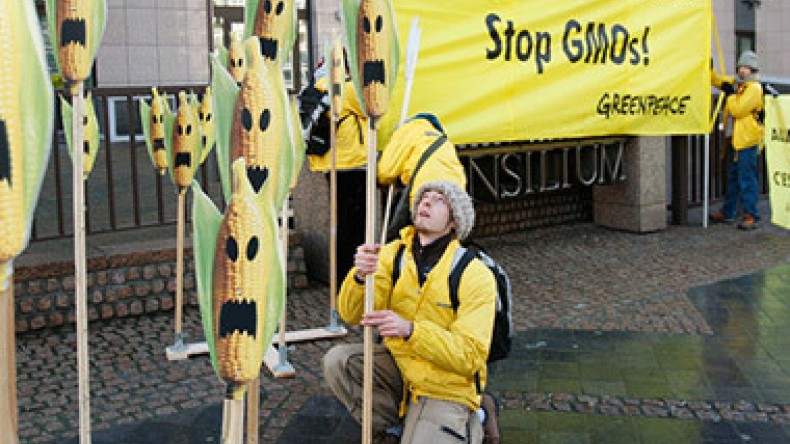
Food fight: Has the EU endorsed its own genetic modification?
By Patrick L Young, RT
Not unsurprisingly as the fuel of humanity, food elicits heated debate. Meanwhile, European unity has fragmented around genetic modification: what’s next?
How to feed an expanding world has long been a heated debate - and so far science has always defeated the skeptics. To put it mildly, those professing doom have (thankfully!) had a hugely average run. The Malthusian delusion was first born in 1798 when a typically inaccurate British cleric waded in with a rather doom laden prediction that humanity’s billion citizens would soon struggle to feed themselves. At least one might argue the Anglican Church’s knee-jerk negative leftist thinking remains a steady treasure trove of stubbornly ill-considered inaccuracy several centuries later. Thus prelates monger panic from the pulpit to feed fear instead of nourishing their flock. Hopefully Anglican theology is more accurate than their ongoing inability to follow science or economics. Malthus’ “An Essay on the Principle of Population” remains one of those tomes which is at once a beloved token of anti-capitalism and a bane to progress for those who recognize the unprecedented growth in prosperity since the industrial revolution.
Thus with a world population above 7 billion and rising, we still find many idealistic citizens trapped in a negative cycle of thinking. Usually it is led by elements of the more liberal and wealthy end of the spectrum. Ironically these self-same urban liberal classes waste food on an epic scale compared to the poor they condescend to ‘help.’ Meanwhile any proof of the Malthusian delusion remains delightfully absent while the upside for agriculture remains vast. Russian agriculture alone still remains significantly below its productive capacity due to myriad problems in the aftermath of Communism’s failure. Moreover, consider some simple food facts: merely reducing the vast wastage between farm and market (50% of many fresh products in emerging markets) would deliver considerably more nutrition for a greater global population. In the end the least productive element are top down blobs. Whereas centralized collectivization starved millions in China and Russia, grassroots initiatives can deliver significant food chain improvements through better logistics.
A certain Western conceit seeks to retain a somewhat contradictory analogue approach to feeding the world. Concerned ‘celebrities’ provoke angst while living luxury lifestyles further encouraging the inefficient NGO blob. This flat earth approach endeavors to remove technology from the future of food. Introducing scientific method, a multiplicity of papers (including within the EU) have found GMO to be safe, based upon over 30 years of empirical data. However, the green blob, a large corporate socialist hierarchy which feeds on, well, not feeding others, is quick to denounce all GMO as evil.
This brings us to the interesting paradox of Golden Rice. Through some nifty laboratory shuffling, genius scientists Ingo Potrykus and Peter Beyer added 3 genes to the existing 30,000 in rice to create a grain so rich in vitamin A that the WHO apparently reckons 18 million children have died from vitamin A deficiency due to the opposition of the green blob. Moreover, another 18 million have gone blind all because they were prohibited from incorporating 300-400 grams of Gold Rice into their daily diet.
The anti-GMO movement is eager to deride Monsanto on the basis that all large corporations are an evil conspiracy, yet in the case of Golden Rice, companies waived their patent rights to provide a better future for our children. Meanwhile apparently research has yet to identify even a single case of food poisoning, let alone death, from GMO foods.
GMO, for years an EU political hot, er, potato has now set a fascinating precedent due to the sheer insolubility of the problem between nations. The more free trading nations such as Britain, alongside Sweden and Spain have been pushing for the right to grow GMO crops, while the EU’s reactionary anti traders such as France, have adopted a typically protectionist stance.
This admission of top down legislative defeat opens up the EU to a separate charge: Brussels decisions are traditionally made on a binding pan-European basis. The European Parliament’s dollop of genetically modified fudge suggests an inherent weakness in the European Union itself. A two-speed food solution at a time when Brussels is being battered by economic woes exacerbated by its political currency experiment raises a fascinating question: If nations can have soil sovereignty, then why can’t they regain more power to run their own nations, instead of being supplicant to the whim of Brussels?
Food for thought.
Newsfeed
Videos






























